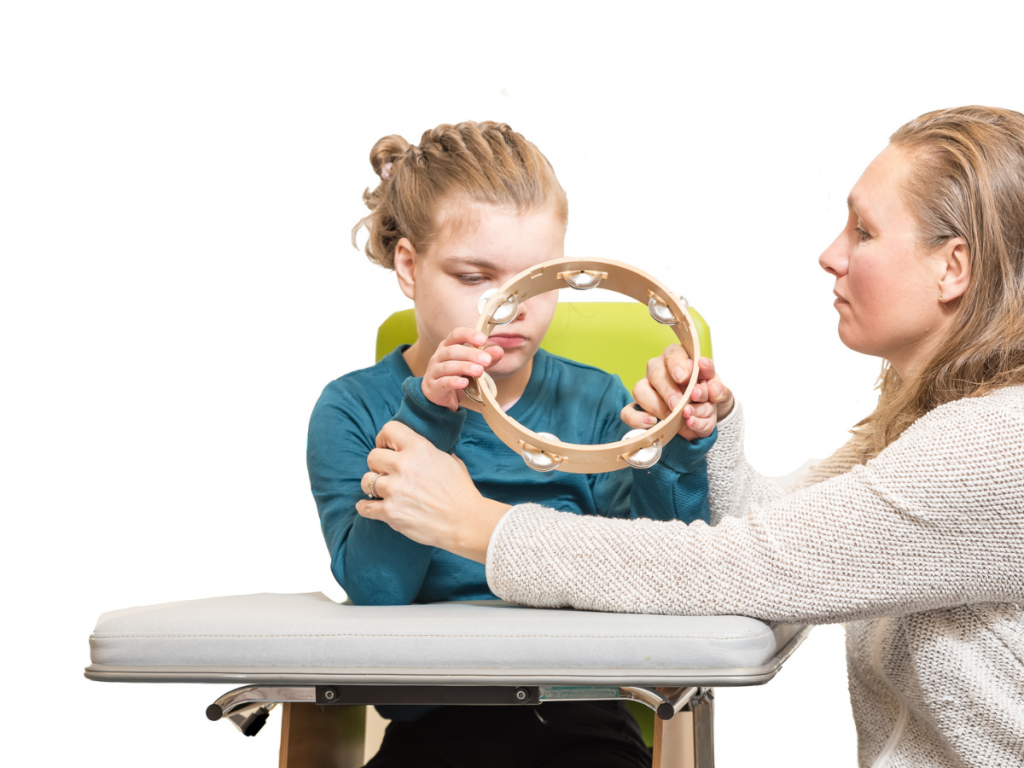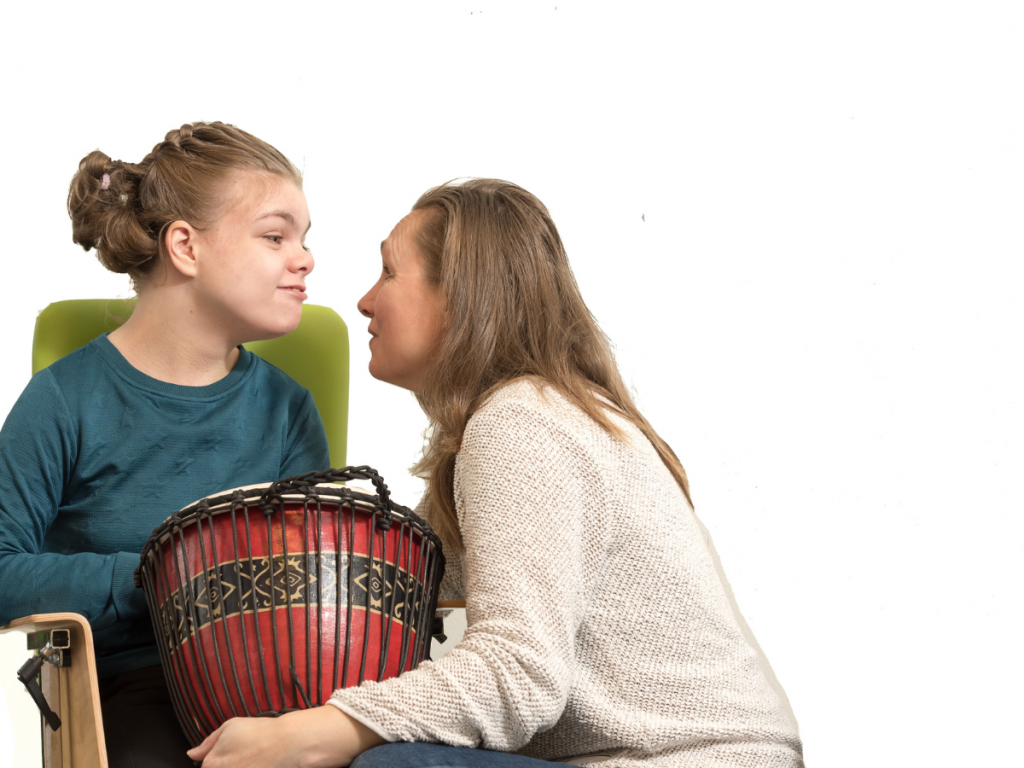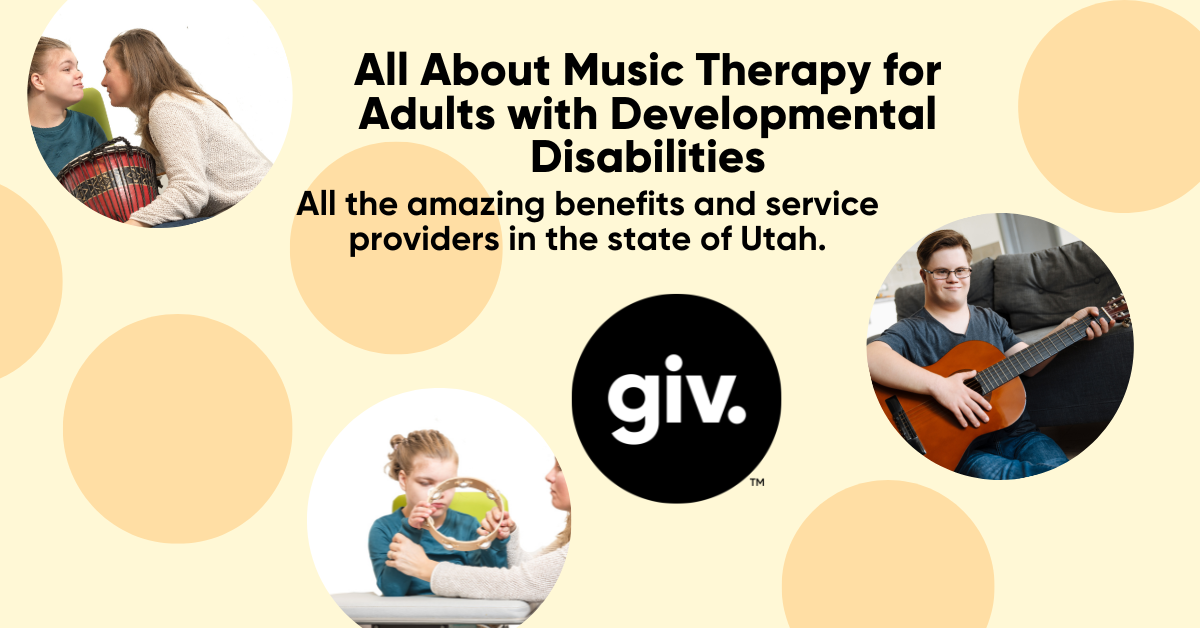There are many benefits to music therapy for adults with developmental disabilities. In this post we will explore what music therapy is, what it does, the benefits of music therapy for people with disabilities, and some great local providers in the state of Utah.
What is Music Therapy?
Music therapy is an evidence based therapeutic discipline that uses music and musical instruments to improve physical, emotional, social, cognitive and developmental outcomes for individuals who have disabilities, or those who are healing from a traumatic (physical or emotional) injury or hospitalization. Music therapy needs to be carried out by a licensed professional who has sought accreditation by the American Music Therapy Association.
What Does Music Therapy Do Inside the Body?
Music is very powerful and can have a lot of healing properties within the body. It is said that simply listening to music can lower the presence of the stress hormone cortisol. Music can also increase the body’s ability to produce immunoglobulin A, which attacks incoming virus cells and boosts immunity to illness. So while there are also many other benefits to music therapy that we’ll discuss shortly, it is amazing to see that simply listening to music makes your body healthier.

Benefits of Music Therapy for Adults with Developmental Disabilities:
There are many benefits of music therapy for adults with developmental disabilities. As previously mentioned, music therapy can help improve physical, emotional, social, cognitive, and developmental outcomes for people with and without disabilities. Lets explore each of these categories and identify the proven benefits that music therapy can have in each area.
Physical:
- Can lead to a change in heart rate, reduced blood pressure, and improved breathing rates.
- Improved motor development
- Improve the quality of sleep
- Improve pain management
- Stimulate unconscious body movements such as tapping your foot, dancing, speech, and more.
Emotional:
- Improve mood
- Lessen depression
- Less feelings of loneliness and isolation
- Reduced anxiety
- Improved stress management skills
Social:
Music therapy has been proven to help children with autism communicate both verbally and non-verbally. It also is bringing two people together for a therapeutic benefit which also improves social skills by having an intimate shared experience with another person whether the therapy is taking place at home, school, or in a hospital.
Cognitive:
Music therapy has been proven to give people an increased sense of control, better coping skills and strategies, and has been shown to fight of some of the effects of demential. Music therapy has also been shown to improve working memory and concentration. These are all great skills for adults with developmental disabilities to be working on as they strive to learn skills to become more independent.

Music Therapy for Adults with Developmental Disabilities in Utah:
There are nine different music therapy providers in the state of Utah. Most of these providers are located with in Salt Lake and Utah Counties, but there are a few options for people who live up Cache County, and down south in Southern Utah as well.
Harmony Music Therapy: Salt Lake City
Pure Progression Music Therapy: Davis, Salt Lake, and Utah County
Utah Music Therapy: Salt Lake City
Primary Children’s Hospital: Locations throughout Utah
Rise Up Music Therapy: Lehi, UT
Ignite Music Therapy: Sandy, UT
Segue Expressive Therapy: Davis County
OverlyMusical: Smithfield, UT
Music therapy can have many benefits for adults and children with developmental disabilities. If this is something that could be of interest to you or a family member reach out to someone in your area to find out more information and if it’s a great fit for you. Many music therapists travel to work with clients in their homes, at school, residential day programs, and even hospitals. Music therapy is a very accessible treatment option for many people that can help lead them down successful paths of growth and healing.






